Grove High Precision RTC
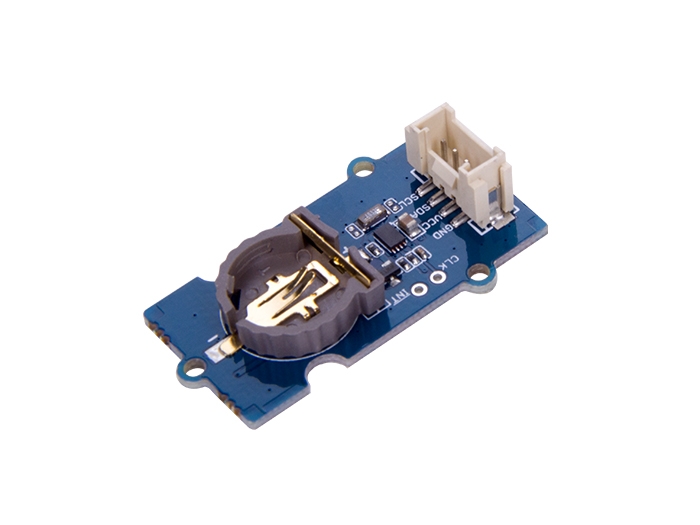
Grove - High Precision RTC based on the clock chip PCF85063TP which is a CMOS Real-Time Clock (RTC) and calendar optimized for low power consumption. An offset register allows fine-tuning of the clock. All addresses and data are transferred serially via the I2C bus and the maximum bus speed is 400 kbit/s.
Compared to Grove - RTC, this module can provide a more accurate result. And provide a programmable clock output for peripheral devices as well as minute and half minute interrupt.
Features
Working Voltage:5V/3.3V
Provides year, month, day, weekday, hours, minutes, and seconds based on a 32.768 kHz quartz crystal
Low current: typical 0.22 uA at VDD = 3.3 V and Tamb = 25 ℃
400 kHz two-line I2C-bus interface (at VDD = 1.8 V to 5.5 V)
Programmable clock output for peripheral devices (32.768 kHz, 16.384 kHz, 8.192 kHz, 4.096 kHz, 2.048 kHz, 1.024 kHz, and 1 Hz)
Minute and half minute interrupt
Oscillator stop detection function
Internal Power-On Reset (POR)
Programmable offset register for frequency adjustment
Interface:Grove - I2C(SCL,SDA,VCC,GND)
Size:20*40mm
Ready-to-go Arduino libraries
Platforms Supported
Interface Function
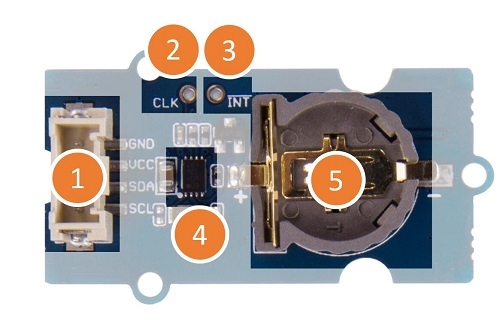
Grove interface
Programmable clock output interface
Minute and half minute interrupt output interface
Clock chip PCF85063TP
CR1225 battery-holder
Application Ideas
Digital still camera
Digital video camera
Printers
Copy machines
Battery powered devices
Getting Started
After this section, you can make Grove - High Precision RTC run with only few steps.
Preparations
Now we are making a demo for Grove - High Precision RTC module, in this demo we'll use a terminal to view the data. Here are what we need to use for this demo.
If this is your first time using Seeeduino Lotus, please refer to Seeeduino Lotus's wiki.
Seeeduino Lotus is fully compatible with Arduino which works as simple as Arduino.
If this is your first time using Arduino, Please put hand on here to start your Arduino journey.
Connecting hardware
Seeeduino Lotus is a combination of Seeeduino and Base Shield. We can connect the RTC module to the I2C socket directly as the below picture shows.
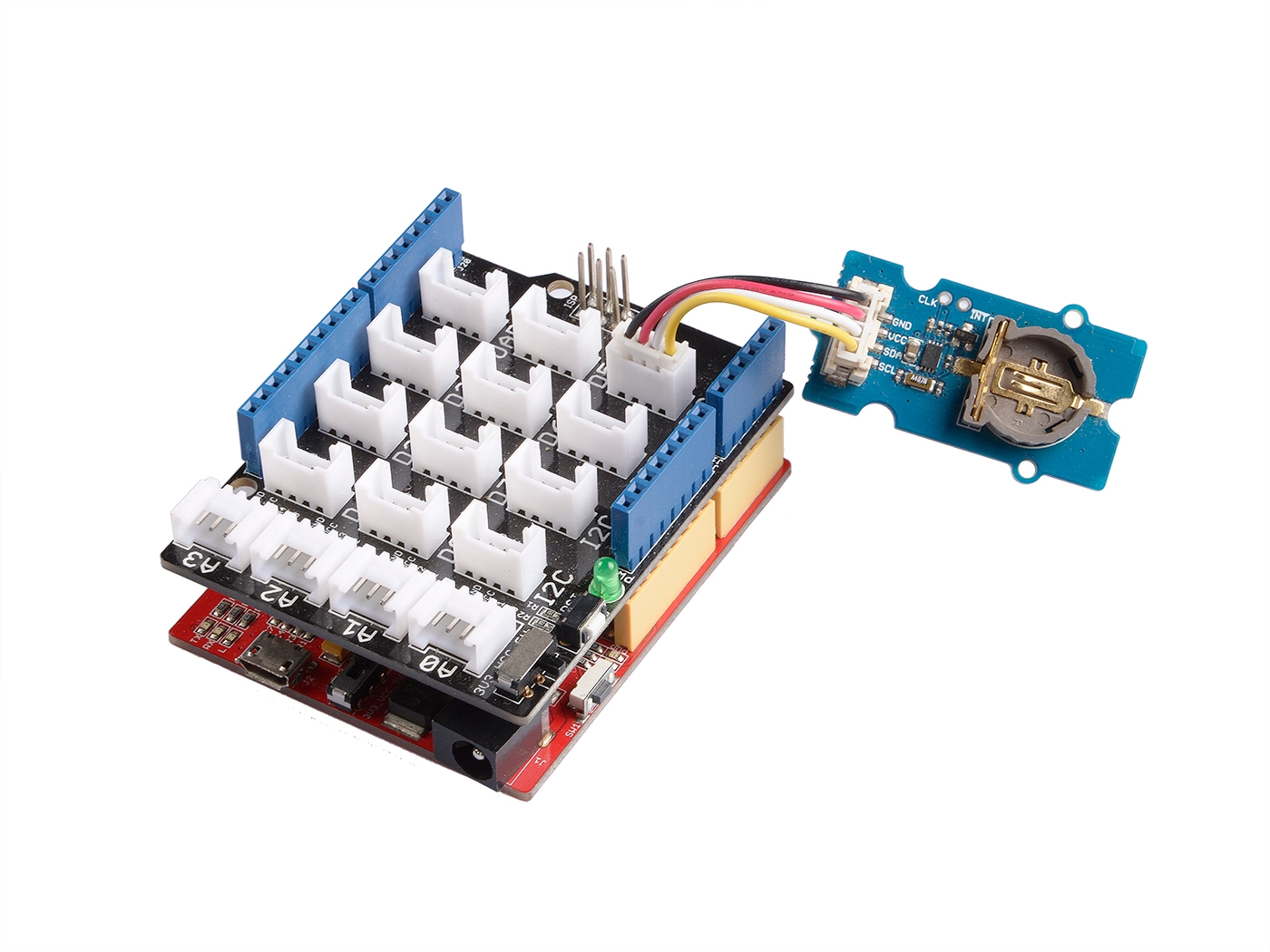
Download the library
Click to download the library and install it (How to install an Arduino Library).
Open the example
After install the library, please restart Arduino, click File>Examples>SetTimeAndDisplay.
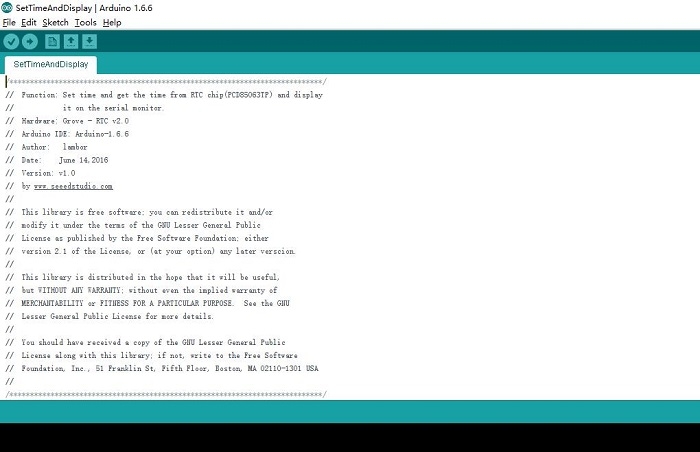
Review Results
After upload completed, you can open the serial monitor to see the result.
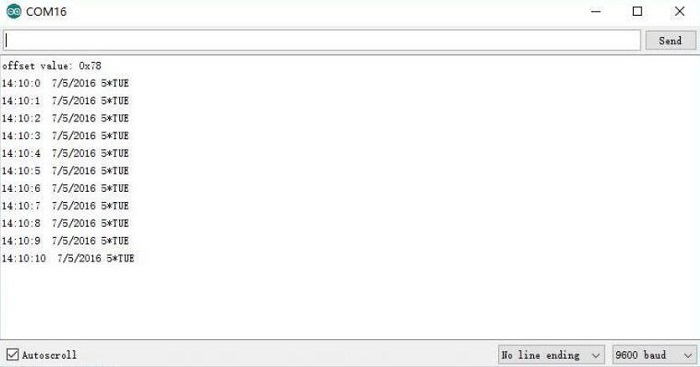
Resources
Last updated
